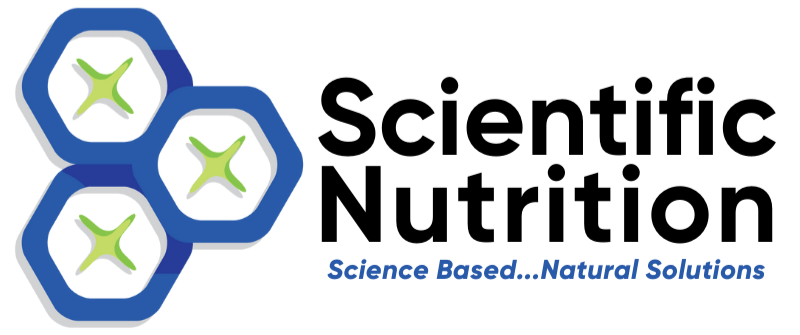Working moms and the corporate workplace
Working moms are superheroes—that’s an understatement. Superheroes don’t exist in real life.
Working moms are real-life heroes with suits and heels. They strive to know how to balance life and work while they try to prioritize their families needs over themselves. Think of sacrifice, love, care, support, and strength…and you will have a perfect demonstration of these characteristics in a working mom.
Like it or not…Earth is yet a male-dominant planet. Research studies show that mothers working in the corporate sector face considerable challenges. The social dynamics of the corporate workplace treat working moms differently. They also face challenges like limited career opportunities, unequal pay, lack of support, time management, and inconvenient interruptions.
I will not rant about all those issues a working mom faces in a corporate workplace. This blog will discuss the 5 easy, yet powerful ways to take care of the mental and emotional well-being of working moms in the corporate sector.
So, whether you are a working mom or an employer, read this blog to the end. I am willing to bet that your workplace will transform into a heaven of humanity when you better support these valuable team members.
5 Powerful Ways to Take Care of Working Moms’ Well-being in the Corporate Workplace
Little adjustments and simple ways of taking care can significantly ease the lives of working moms. About 75% of women in a workspace are mothers!
Here are 5 ways you can support your working mothers;
1. Offer flexible work arrangements to working moms.
Flexibility is a necessity for working mothers juggling professional responsibilities with family obligations. According to a recent study by the International Journal of Sociology, flexible work arrangements significantly contribute to the well-being of working moms. With 65% reporting reduced stress levels and 45% reporting increased job satisfaction if flexibility is available.
Offering options such as telecommuting, flexible hours, and compressed workweeks allows mothers to manage their work-life balance better. Flexible work arrangements result in higher productivity and retention rates.
2. Create a friendly, kind, and “understanding” work culture.
The culture of a workplace plays a crucial role in shaping the experiences of working mothers. Research from NIH (National Institute of Health) indicates that a friendly, supportive, and empathetic work culture leads to higher job satisfaction among these working moms. They feel valued and respected.
Implementing policies prioritizing work-life balance fosters a sense of belonging and reduces feelings of isolation for working mothers. These would include paid parental leave, lactation support programs, and on-site childcare facilities.
Similarly, your company must promote a culture of kindness and understanding. Fellow colleagues and supervisors offer support and encouragement creating loyalty and trust. It can significantly enhance the mental well-being of working moms and enable them to thrive personally and professionally.
3. Facilitate moms with returnship /return-to-work programs.
Returning to work after taking time off for caregiving can be daunting for many mothers. Returnship or return-to-work programs provide a structured pathway for re-entering the workforce. These programs offer valuable training, mentorship, and support, tailored to the needs of returning mothers.
Many research studies show evidence of the effectiveness of these programs, and many surveys show that participants successfully transitioned back into full-time employment within weeks.
These programs also benefit employers and their companies as they don’t have to hire or train new talent. It also demonstrates their commitment to supporting working mothers in their career journeys which contributes to a more diverse and inclusive workforce.
4. Take care of their nutritional needs.
Nutrition is vital for physical and mental well-being, yet it’s often overlooked in corporate settings. Working mothers, in particular, may struggle to prioritize their nutritional needs amidst busy schedules and competing demands. Poor dietary habits increase stress, anxiety, and fatigue, and more among working individuals.
Employers can support the dietary needs of working mothers by offering on-site healthy food options, organizing wellness seminars on balanced eating, and providing access to nutrition counseling services. By promoting a culture of health and wellness in the workplace, employers not only enhance the overall well-being of their employees but also improve productivity and reduce absenteeism.
5. Educate your staff (employees) about maternal mental health.
Working moms need special support, especially during pregnancy and just after childbirth. Huge hormonal shifts and nutritional deficiencies not only affect her physically but even emotionally. People often tag pregnancy and childbirth as “common life experiences,” but the reality is that these events have deep effects on the mental and physical healing needs of mothers.
You will need to educate all your staff members about maternal mental health. It is crucial for fostering a supportive and understanding workplace environment, particularly with post-partum depression. I often see the cause on a Hair Analysis and can help to correct it quickly.
Specifically, it is very important to raise awareness about the following mental health challenges faced by new mothers;
a. Postpartum general anxiety
Postpartum general anxiety can manifest as persistent feelings of nervousness, restlessness, and excessive worrying about the well-being of the baby and oneself. By educating employees about the signs and symptoms of postpartum general or separation anxiety, workplaces can create a culture where mothers feel comfortable seeking help and support without judgment. By educating the fact that it is a biochemical reaction, not “just feeling sad”, you will foster compassion and empathy.
b. Birth-related PTSD
Childbirth can be a traumatic experience for some women. It can lead to symptoms of post-traumatic stress disorder (PTSD). Birth-related PTSD may arise from complications during childbirth, emergency medical interventions such as C-Sections, or feelings of powerlessness and fear. It’s essential for employees to understand the impact of birth-related trauma on maternal mental health and to provide a safe space for mothers to express their feelings and seek professional help if needed.
c. Postpartum depression
Postpartum depression is a common but serious mental health condition that affects many new mothers. Sometimes it may not show up for months until hormones are shifting or the presence of heavy metal toxicity is not tolerable any longer.
Symptoms may include persistent feelings of sadness, hopelessness, fatigue, and difficulty bonding with the baby. By educating staff about the signs and symptoms of postpartum depression, workplaces can promote early detection and intervention. It will help others to understand it is biochemical by nature and not a broken psyche. Support can greatly improve her recovery!
Let’s take care of our real heroes, aka working moms.
What changes can you make to support your valuable talent?
Hair Analysis and Working Moms
It’s human nature that we crave recognition and want to be understood. Working in the corporate sector and caring for children and family are two daily difficult jobs a mother performs. It is almost as if they have 2 fulltime jobs to juggle. They truly deserve the care and support at the workplace.
Interestingly, when you care for mom employees in your companies, they can work more productively. Consequently, you’ll get better results in her work life while improving her life at home. Your company grows and builds a reputation in the market so it’s a win-win for all.
I particularly love to educate and provide solutions for working moms that are struggling to meal plan and eat healthy with an active family life. It gets difficult when you need to get children to activities after work and have minimal time but it IS possible.
Where do we start with health-related symptoms?
We always start with a Hair Mineral Analysis to see the individual needs and to form the game plan to win. Her family will follow the leader as she plans to eat better and practice more self-care. The children are a bonus as they too will feel the benefits of good nutrition. This cuts down on absenteeism due to sick kids!
It becomes a full circle of positive shifts in the life of the hard-working mom. Contact me to discuss your employees’ well-being and natural health solutions. I routinely consult and offer natural health solutions to CEOs, executives, and business owners to help them run their businesses better with my Health For Life Wellness program.
Further studies and readings;
http://dx.doi.org/10.5296/ijhrs.v11i2.18457
https://journals.sagepub.com/doi/full/10.1177/0972150919847799
Copyright Scientific Nutrition, LLC 2024




